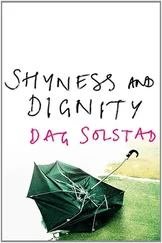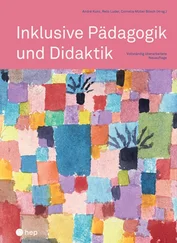Dr Schiøtz was behind all the arrangements that made it possible for Bjørn Hansen to live without the least fear of being found out. It was the doctor who had explained to him that he had nothing to fear, not even from the first examination at the hospital, when Dr Schiøtz coldly and calmly allowed a nurse to assist him. And, indeed, the nurse had suspected nothing, even though she had helped lift the town treasurer out of his wheelchair and onto the examination table. Although Bjørn Hansen had concentrated intensely on simulating a paralysed person, he was still an amateur and could easily have been found out by a nurse’s sharp eye, if such vigilance had been within the bounds of possibility in such a situation; the secret happened to be, of course, that it was not.
It was Dr Schiøtz who had arranged everything; Bjørn Hansen was the actor who performed his simulations, but according to Dr Schiøtz’s instructions and convincing interpretations. However, the most important of the physician’s arrangements were those that he undertook in order to prevent Bjørn Hansen from coming into contact with anyone who might have been able to unmask him. Other doctors, in the absence of Dr Schiøtz, ergotherapists and physiotherapists. In other words, to prevent Bjørn Hansen from having to stay in a convalescence home and being subjected to rehabilitation and expert training programmes. Sunnaas Hospital was a threat, which only Dr Schiøtz’s authority prevented Bjørn Hansen from becoming acquainted with. Dr Schiøtz pointed out that it was unnecessary to send the patient there, a training programme at home was an equally effective solution and much less expensive — an argument that proved irresistible. In order to hinder a Kongsberg physiotherapist from treating Bjørn Hansen, however, Dr Schiøtz had to do a bit of juggling, he had told him, but it would work out all right and not be discovered, unless this whole case were to unravel for other reasons.
Bjørn Hansen found himself in a wheelchair. In his own flat. Wheeled himself about in the flat, letting time pass. Enjoyed looking forward to his strenuous expeditions to the cool spaces and streets of the supermarket. He could not complain. In fact, that would be quite unthinkable. This had been his plan, which he had put into effect. However, fundamentally, he was the creation of Dr Schiøtz.
With more than a touch of displeasure, he began to look upon himself as an artwork signed Dr Schiøtz . Bjørn Hansen now realised that Dr Schiøtz had knowingly chained him to a wheelchair, for life. He could have prevented it (when Bjørn Hansen was sent from Vilnius to his Kongsberg Hospital office in a wheelchair on the Tuesday of Holy Week, he could, once the two of them were alone, have said, ‘We’ll stop now,’ and then Bjørn Hansen could have gone no further), but he did not dare to. On the contrary, he pushed on, inexorably. In an unendurable atmosphere (a ‘dangerous game’) he had staged that last journey over to the Other Side, from which there was no return without catastrophic consequences for both of them (and for Dr Lustinvas). Up to this point they would both have gone free (although not Dr Lustinvas): Dr Schiøtz because he would have exposed Bjørn Hansen’s deception and left no clues that pointed back to him (in case Bjørn Hansen should try to implicate him, as a hypothetical possibility); and Bjørn Hansen because he had obviously gone mad and consequently would have been reported ill and consigned to psychiatric treatment before he could resume his position as treasurer of Kongsberg. But instead, Dr Schiøtz had carried out the plan mercilessly, without even asking Bjørn Hansen if he really wanted to go on, in those few seconds before it became serious and he was committed to it for life. It was as if Dr Schiøtz feared that Bjørn Hansen, who after all sat in a wheelchair and knew he would remain there, even though he did not need to, but had to if he took this last little step without protesting about it, might nonetheless give the alarm at the last moment, before this preposterous and dangerous game had turned serious. What were Dr Schiøtz’s motives? What forces could be driving him?
Why had Dr Schiøtz forced this through? What possible joy could it give him to chain a healthy person to a wheelchair in this way? It was certainly not in order to see him sitting there, for at the beginning of September Bjørn Hansen could report that he had not seen Dr Schiøtz since the ‘examination’ at Kongsberg Hospital five months ago. At first he had thought it was because Dr Schiøtz refused to take the risk of calling on him because someone, say, the community nurse, might then ‘surprise’ them together. But why would that have mattered? A doctor calling on one of his patients, what suspicion could be aroused by that? None at all, at least not if they were ‘surprised’ only once, which would not be very probable, even if Dr Schiøtz had visited Bjørn Hansen both often and regularly. But Dr Schiøtz had called him. He had spoken to the doctor on the telephone. Three times in the last two months. He had then been the caring doctor who rang up to encourage him. In a gentle voice he had asked how he was doing, and when Bjørn Hansen had replied that ‘life must go on’, he had praised him. He had given him sound advice about building up the strength in his arms, because now the arms alone must, after all, replace much of what arms and legs jointly had done so simply and efficiently before. Finally he had asked about some practical matters, such as the fact that Bjørn Hansen, on the alderman’s recommendation, had applied for a disability pension, besides asking about whether Bjørn Hansen had received the insurance money he was entitled to. It was no great sum, only 160,000 kroner, ordinary travel insurance. But by enquiring about it — as he did every time he called — Dr Schiøtz was hinting at what bound their fates together, because it had been part of their agreement that Dr Schiøtz would receive half of the insurance money. In fact, at some point during the planning stage they had discussed whether Bjørn Hansen should take out a larger insurance but had decided against it, because it was too risky to take out an insurance of that size shortly before the accident it was to cover occurred. But by referring to this modest travel insurance every time he called, Dr Schiøtz had given Bjørn Hansen a secret sign that he had not ‘forgotten’ him or repressed their common project, which had now been realised, but that he still felt bound by it, which Bjørn Hansen heard with a sense of relief.
At the beginning of September the insurance company informed him that the money had been released and deposited in his bank account. He had the community nurse take out 20,000 kroner. A few days later he contacted Peter and had him take out 25,000 kroner, of which he gave his son 5,000 kroner, which made him very happy. He met his son in front of Kongsberg Engineering College, on the open plaza there, which was flooded by a bright autumn light; sitting in his wheelchair, a plaid over his knees, he handed his son 5,000 kroner before rolling home again. He rang up Dr Schiøtz at the hospital. During their conversation he mentioned that the insurance money had arrived. Then he put 40,000 kroner in an envelope and waited. Dr Schiøtz came the same evening.
Bjørn Hansen received the doctor sitting in his wheelchair; he opened the door to him in his laborious way and rolled ahead of him into the living room. Dr Schiøtz met his own creation, which at the same time was Bjørn Hansen’s own project. This meeting ended in dismay for Bjørn Hansen, for when Dr Schiøtz had left, Bjørn Hansen remained behind, totally isolated and with a picture of himself that really gave him a fright. At first he had been disappointed because his attempt at achieving contact with the doctor was rejected. Every invitation to a mutual understanding was refused. Dr Schiøtz was on a mild high and all he was interested in was the money. What Bjørn Hansen had understood as a formal confirmation of their pact — in the sense that Bjørn Hansen, by giving Dr Schiøtz the envelope, had fulfilled his obligations and Dr Schiøtz, by receiving it, confirmed that he, for his part, had taken on these obligations, so that the handing over of the money was to be seen as a symbolic act that bound them ever closer to each other — was lost on Dr Schiøtz; for him the money was the main thing, and the only reason why he happened to be there. This was obvious from his behaviour. Looking restlessly about him, his face lit up when he caught sight of the envelope, which Bjørn Hansen had laid on top of the sideboard, the sole item there. ‘Is that…?’ asked the doctor, and when Bjørn Hansen nodded he snatched the envelope. He put it in his inside pocket and looked at his watch. ‘Very sorry,’ he said, ‘but I have to go now. I have an important appointment.’ Bjørn Hansen looked at him — that was the moment when he felt dismayed.
Читать дальше












